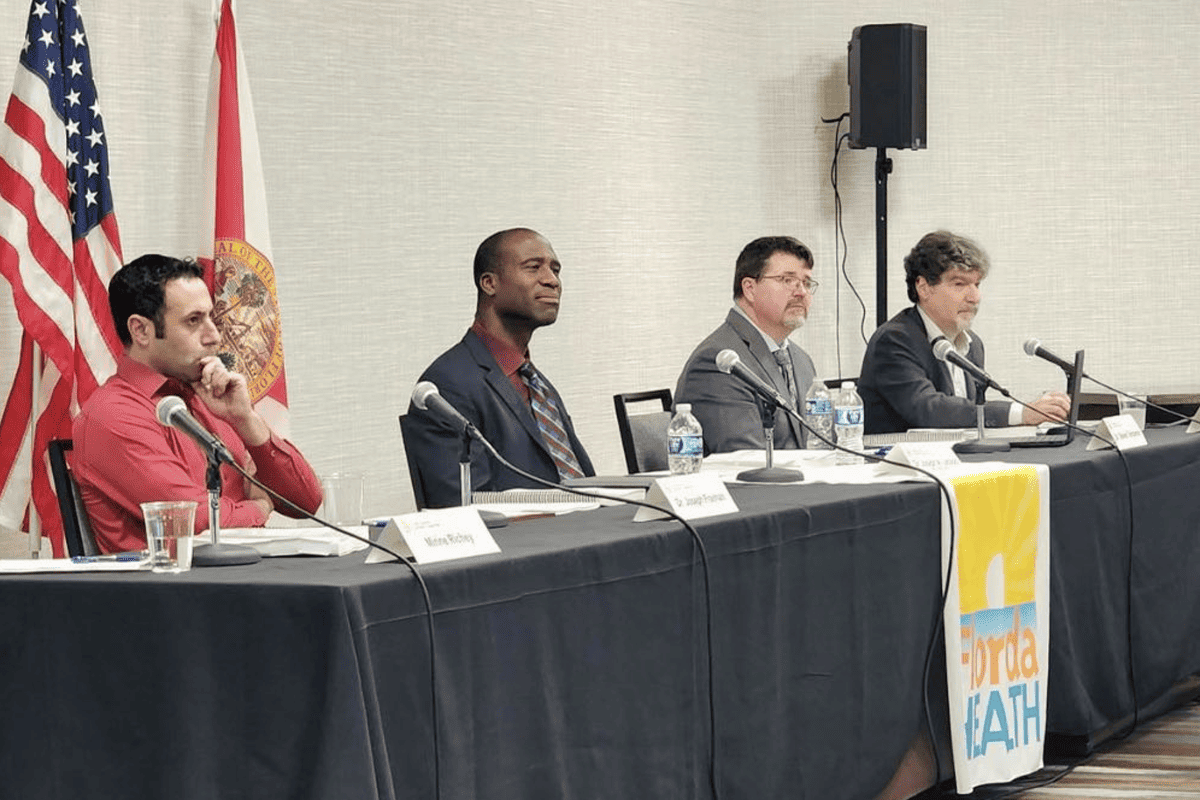TALLAHASSEE, Fla. (FLV) – The Public Health Integrity Committee held a meeting Monday to discuss the impact of the federal COVID-19 response and how that federal response contrasted with other states and countries.
The committee was established to assess federal public health recommendations and guidance to “ensure that Florida’s public health policies are tailored to Florida’s communities and priorities.”
It was chaired by Florida Surgeon General Joseph Ladapo.
“In terms of the the U.S. federal response, it’s been a running joke now in this country, how things started is ’10 days to stop the spread,’ and of course, we’re three years later,” Ladapo said.
“And some ways, it actually is a good representation of the federal response because it has been varied and with elements of almost randomness and chaoticness, in terms of the ability of different federal agencies and the federal government from the start of the pandemic,” Ladapo explained.
Ladapo said there have been two federal administrations and different approaches that were taken to handle the coronavirus pandemic, along with different strategies being implemented.
He said there has been often “no coherent vision of what the overall metrics should be, what the overall goal should be, in a way that really tied in with reality.”
Ladapo said they are going to use going to use the feedback they receive to inform other department of health policies and guardrails for future pandemics.
Gov. Ron DeSantis previously announced the committee would advise the public and provide oversight moving forward of the public health establishment.
Members of the committee include Jay Bhattacharya, MD, Ph.D., Martin Kuldorff, Ph.D., Tracy Beth Høeg, MD, Ph.D., Joseph Fraiman, MD, Christine Stabell Benn, MD, PhD, Bret Weinstein, Ph.D., and Steven Templeton, Ph.D.
Weinstein said he saw an an “increasingly obvious attempt to utilize public health as an excuse to override medical reason, and the growth of knowledge that would ordinarily occur through science.”
“I think this is clearest in the fact that at the federal level, there has been almost no willingness to recognize errors that have happened, and many of us would be a great deal more forgiving of those errors if a natural corrective mechanism had been evident, but it wasn’t,” Weinstein explained.
“It appeared to be narratively driven, and for that reason, errors were just simply not acknowledged,” Weinstein said.
Høeg said there hasn’t been any sort of investigation, besides the Congressional Select Subcommittee on the Coronavirus Pandemic.
“There has not been the same willingness to collectively agree that there were things that could have been done better,” Høeg said.
Høeg said there are “so many things we [United States] could look back and say we could have done this better,” but that it’s “not happening.”
“I do think it’s a product of the United States, bipartisan political system, that there’s a general unwillingness of each side to admit that they may have gotten things wrong, but it’s incredibly important for avoiding mistakes in the future,” Høeg said.
Høeg said Norway was “very quick” to investigate and admit that they got school closures wrong.
He said Denmark stated that they “thought it was a mistake that they vaccinated children” because the vaccines “didn’t end up preventing transmission.”
Ladapo said it is not clear that America “really got any benefit from from the types of restrictions that we imposed” during the pandemic.
“I personally have a preference for leaders who are willing to admit when the truth is more important than worrying about what your opponent how your opponent will try and use what you say,” Ladapo explained.
“Frankly, I think that type of leadership resonates with people. I think about frankly, I think Governor DeSantis is a great example of that,” Ladapo said.
Ladapo said he believes strong leadership “inspires people,” which, for him, was lacking federally.
“Heaven knows we had none of that, in my opinion, at the federal level, and frankly, it would have made a difference. That resonates with a lot of people, and it’s certainly resonated enough to really shift voting patterns. I mean, dramatically in Florida,” Ladapo explained.
During April 2020, DeSantis issued a stay-at-home order that exempted outdoor activities, religious services, and other “essential activities,” citing guidelines from the Trump administration, that lasted one month.
DeSantis issued no statewide beach closure order, but at the direction of the CDC and local officials, ordered Broward and Palm Beach County beaches to close in mid-to-late March. Reopening of the state began early May, drawing criticism from the Trump administration.
In October 2022, Ladapo announced new mRNA COVID-19 vaccine guidance, advising against males aged 18-39 years old from taking those vaccines due to a reported 84% increase in the relative incidence of heart-related deaths.
Ladapo also warned about the risks of vaccinating “healthy children with no underlying conditions.”
In November 2022, Ladapo took to social media to warn parents to keep COVID-19 vaccines away from their children following a report from the New England Journal of Medicine.
DeSantis announced in December his petition for a statewide grand jury to investigate “any and all wrongdoing” in Florida with respect to the COVID-19 vaccine manufacturers.
“It is against the law to mislead and to misrepresent, particularly when you’re talking about the efficacy of a drug,” DeSantis said.
The statewide grand jury will be allowed to investigate groups involved in the design, development, clinical testing, marketing, and distribution of vaccines said to prevent COVID-19 infection, symptoms, and transmission. It will be impaneled for one year.












